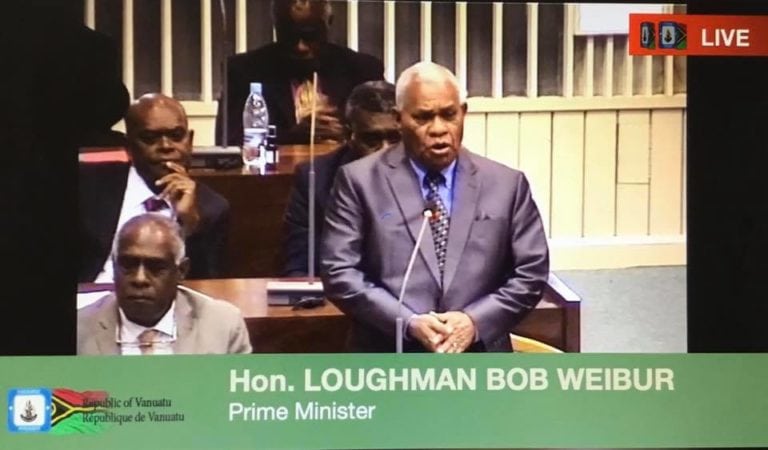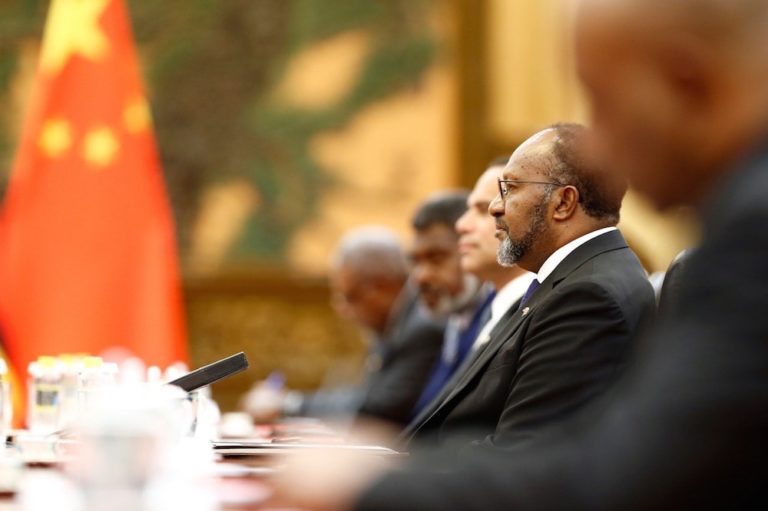(PINA/IFEX) – Vanuatu’s only independent newspaper, “Vanuatu Trading Post”, withdrew support from the country’s national news media association, Pres Klab blong Vanuatu, on 3 May 1998. It came after Pres Klab blong Vanuatu marked World Press Freedom Day with awards to the country’s four prime ministers since independence in 1980 from joint British-French rule. “Trading […]
(PINA/IFEX) – Vanuatu’s only independent newspaper, “Vanuatu Trading Post”,
withdrew support from the country’s national news media association, Pres
Klab blong Vanuatu, on 3 May 1998. It came after Pres Klab blong Vanuatu
marked World Press Freedom Day with awards to the country’s four prime
ministers since independence in 1980 from joint British-French rule.
“Trading Post” publisher Marc Neil-Jones issued a statement in which he said
the country’s first prime minister, Father Walter Lini, deported an
expatriate editor of a previous independent newspaper, banned some overseas
journalists from the country and rigidly controlled the local media. Another
prime minister, Maxime Carlot Korman, censored sensitive stories, such as
French nuclear testing in the Pacific, and threatened
Neil-Jones, who is British, with deportation. Neil-Jones said the third
prime minister, Serge Vohor, did not interfere with the media but attacked
“Vanuatu Trading Post” through the government radio and television stations
and newspaper. According to Neil-Jones, this was done because “Trading Post”
published reports by the Ombudswoman criticising Vohor’s behaviour and
alleging abuse of office. Four of the six Pres Klab blong Vanuatu executives
work for government media organisations. Neil-Jones alleged they were
influenced into making the awards by the chairman of the government’s
Vanuatu Broadcasting and Television Corporation.
Pres Klab blong Vanuatu president Ricky Binihi, who works for the
government-run “Vanuatu Weekly”, said the awards were in recognition of the
four men’s roles in developing the news media in Vanuatu. He said Pres Klab
blong Vanuatu took stock of the evolution of media freedom in the country
and how each prime minister learned from earlier mistakes. He acknowledged
that “Voice of Vanuatu” editor Christine Coomb was deported in 1983, but
said the decision was made by a newly-elected government whose
people had been treated like second class citizens for almost 70 years. He
alleged some overseas news media were irresponsible in their reporting on
Vanuatu and damaged the country’s economy. He said freedom of expression is
enshrined in the Vanuatu constitution, but the people also have their own
values and rich cultures, and this includes respect for their leaders. As
part of World Press Freedom Day next year Pres Klab blong Vanuatu will be
launching its inaugural Vanuatu Media Freedom Award. Pres Klab blong Vanutu
believes Neil-Jones will be a strong contender for this, Binihi said.
Background Information
According to PINA, Vanuatu’s news media were once regarded as one of the
most government-controlled in the Pacific Islands. But in recent years the
country’s journalists have operated with unprecedented freedom and the
“Vanuatu Trading Post”, published three times a week, competes vigorously
with the government-run “Radio Vanuatu”, “TV blong Vanuatu”, and “Vanuatu
Weekly” newspaper.


